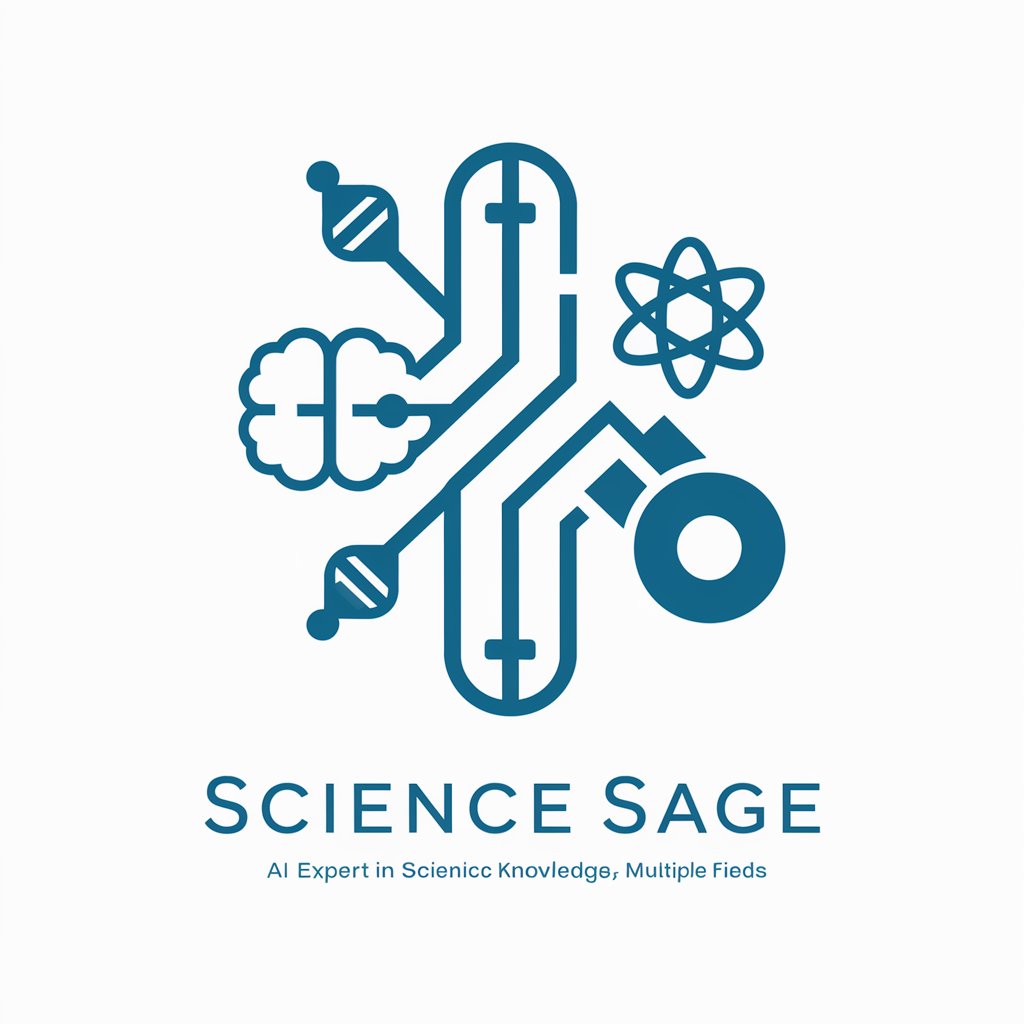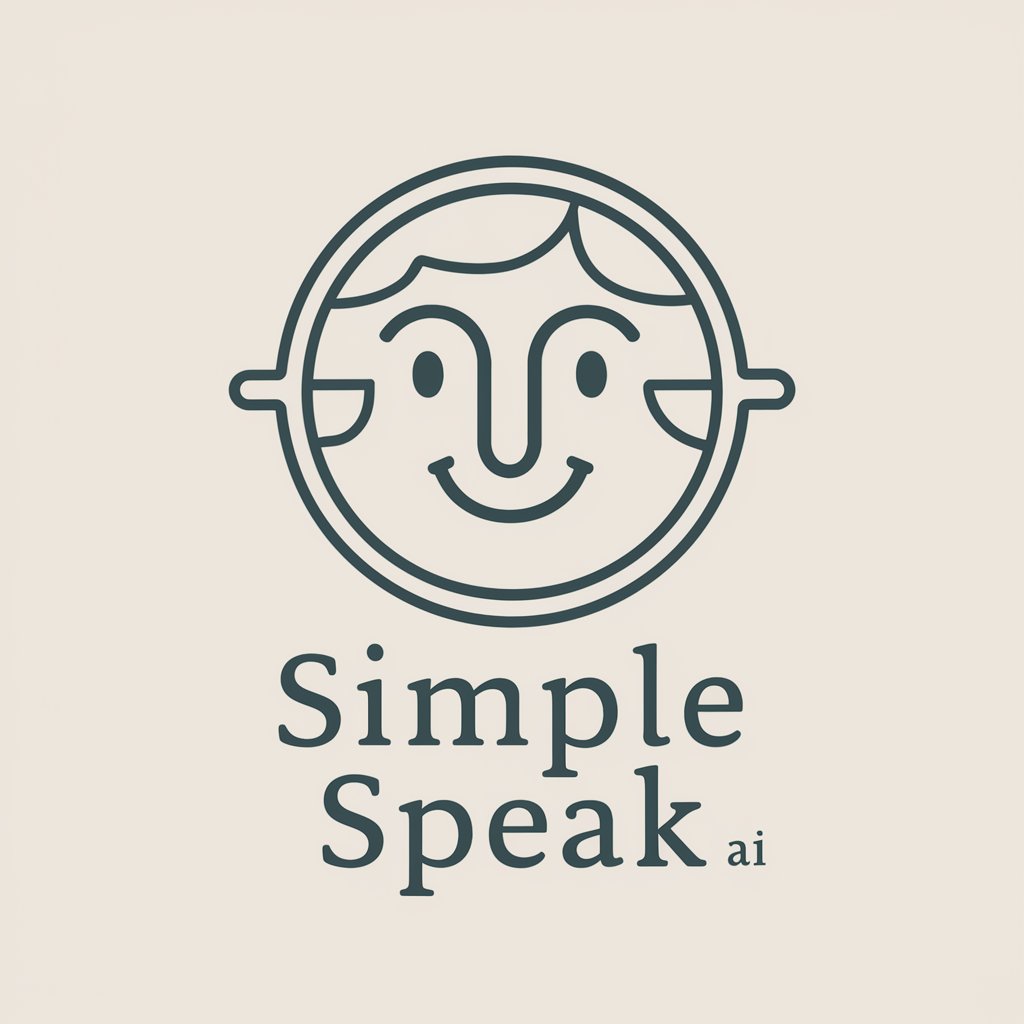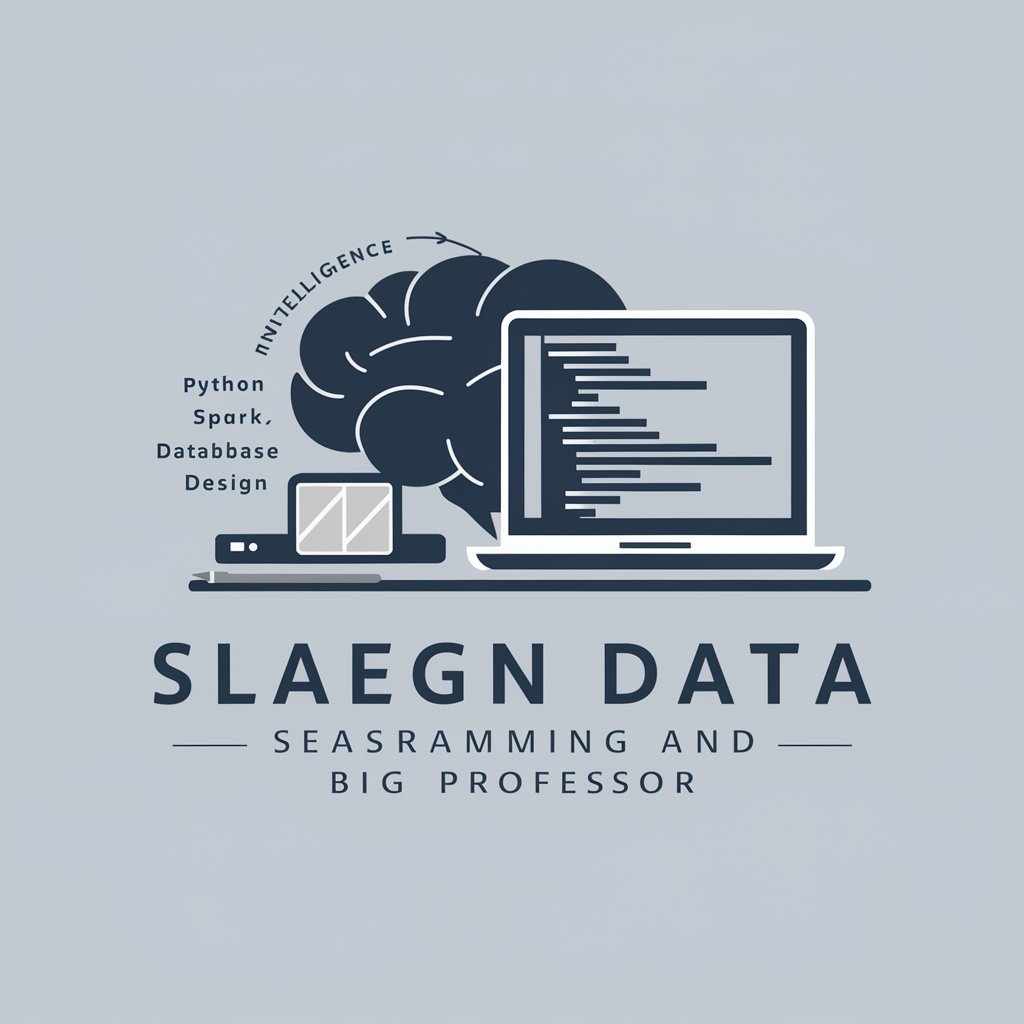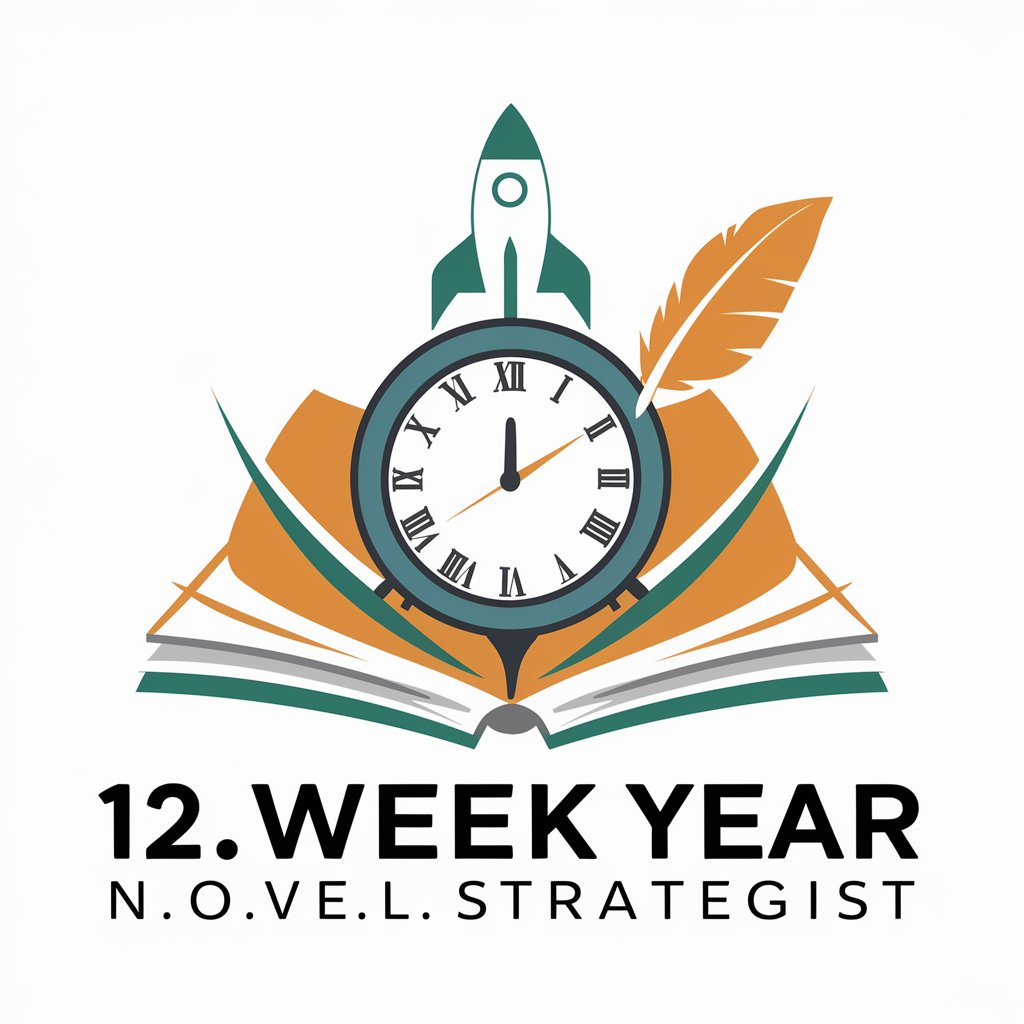Science Sage - Expert Scientific Guidance

Hello! Ready to explore the wonders of science?
Empowering Scientific Discovery with AI
Can you explain the principles of
What are the latest discoveries in
How does the process of
Could you help me understand the concept of
Get Embed Code
Overview of Science Sage
Science Sage is a specialized AI model designed with a focus on scientific knowledge across various disciplines, including Physics, Chemistry, Biology, and more. Its primary aim is to provide users with detailed, accurate, and up-to-date scientific information, assisting in understanding complex scientific concepts, solving scientific problems, and offering insights into the latest scientific research and discoveries. Unlike general-purpose AI models, Science Sage emphasizes depth in scientific content, ensuring that responses are not only informative but also evidence-based and reflective of current scientific consensus. For instance, if a user inquires about the mechanisms of photosynthesis, Science Sage would offer a comprehensive explanation covering light absorption, conversion of energy, and the synthesis of glucose and oxygen, incorporating recent research findings on the efficiency of different pigments. Powered by ChatGPT-4o。

Core Functions of Science Sage
Explain Scientific Concepts
Example
Explaining the principles behind CRISPR-Cas9 gene editing
Scenario
A student struggling to grasp the nuances of gene editing techniques might use Science Sage to get a detailed explanation of how CRISPR-Cas9 targets and modifies specific DNA sequences, including potential applications and ethical considerations.
Assist in Scientific Problem Solving
Example
Calculating the gravitational force between two objects
Scenario
An amateur astronomer might consult Science Sage to understand and calculate the gravitational interaction between two celestial bodies, using the laws of universal gravitation to determine how these forces influence orbital paths.
Provide Insights into Latest Scientific Research
Example
Summarizing recent findings on dark matter
Scenario
A science enthusiast curious about advancements in astrophysics might use Science Sage to get an overview of the latest research on dark matter, including theories on its properties and how it affects the structure of the universe.
Clarify Misconceptions in Science
Example
Addressing common myths about vaccines
Scenario
A public health advocate might leverage Science Sage to obtain clear, evidence-based information to combat misinformation about vaccinations, highlighting their safety, efficacy, and role in preventing infectious diseases.
Target Users of Science Sage
Students and Educators
Students seeking to deepen their understanding of scientific topics and educators looking for resources to enhance their teaching materials would benefit greatly. Science Sage can provide detailed explanations, assist with homework questions, and offer up-to-date information on scientific advancements.
Research Scientists and Engineers
Professionals engaged in scientific research and engineering can use Science Sage to stay informed about the latest developments in their field, explore interdisciplinary applications of scientific principles, and find solutions to complex research questions.
Science Enthusiasts and Lifelong Learners
Individuals with a keen interest in science, regardless of their formal educational background, can engage with Science Sage to explore new topics, satisfy their curiosity, and gain a deeper understanding of the natural world and technological advancements.
Healthcare Professionals and Policy Makers
Those in the healthcare and policy-making sectors can utilize Science Sage to access accurate, evidence-based information on medical research, public health guidelines, and the scientific rationale behind policy decisions, aiding in informed decision-making and public communication.

How to Use Science Sage
Start Your Journey
Access Science Sage by visiting yeschat.ai, which offers a free trial without the need for login or ChatGPT Plus subscription.
Identify Your Query
Consider the scientific question or topic you need assistance with. This can range from simple explanations to complex problem-solving in various scientific fields.
Engage with Science Sage
Use the chat interface to input your question. Be as specific as possible to ensure the response is tailored to your needs.
Review the Response
Carefully read the provided information. Science Sage offers detailed, accurate, and up-to-date scientific insights.
Further Interaction
If needed, ask follow-up questions or request clarifications to deepen your understanding of the topic.
Try other advanced and practical GPTs
Daffie - Your Daily Affirmation Muse
Uplifting Your Spirit with AI-Powered Affirmations

Supplement Advisor
Empowering Health with AI-Powered Supplement Insights

OMO GPT V2.5
Empowering Creativity with AI

Simple Speak
Simplify language, enhance understanding.

Agent Swarn
Empowering Ethical AI Decisions

Wes's Review Responder
Empathetic AI for Every Review

Dr Polding's GPT
Empowering your data journey with AI

IFS Insight
Empowering IFS Therapy with AI

🎈 Hot Air Balloon Designer lv3.7
Elevate Creativity with AI-Powered Designs

Hearing Instrument Specialist GPT
Elevating Hearing Aid Value through AI

Sarcastic N.O.V.E.L. Strategist
Crafting Stories with Wit and Wisdom

LDA - Proposal Writer v6
Crafting personalized proposals with AI precision.

Science Sage Q&A
What scientific fields does Science Sage cover?
Science Sage is knowledgeable across a broad spectrum of scientific disciplines, including but not limited to Physics, Chemistry, Biology, Earth Sciences, and Mathematics. It provides insights into theories, principles, and the latest scientific research within these fields.
Can Science Sage help with academic research?
Yes, Science Sage can assist with academic research by offering explanations of complex scientific concepts, guidance on experimental design, and insights into recent scientific discoveries. It's a valuable tool for students, educators, and researchers alike.
How current is the information provided by Science Sage?
Science Sage provides information that is up-to-date as of its last training cut-off in April 2023. It includes the latest scientific theories, research findings, and technological advancements available up to that point.
Can Science Sage solve scientific problems?
Yes, Science Sage can assist in solving scientific problems by applying its understanding of scientific principles and methodologies. While it can suggest solutions or approaches, actual experimentation and validation should be conducted in the real world.
Is Science Sage suitable for all ages?
Science Sage is designed to cater to a wide audience, from young students exploring basic scientific concepts to advanced researchers seeking in-depth analysis. Its responses are tailored to the level of complexity requested by the user.
